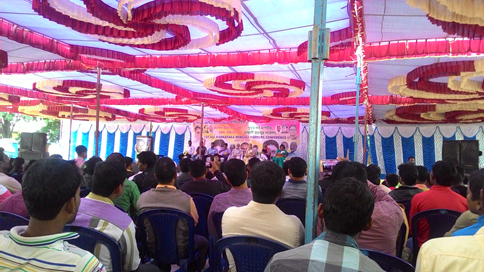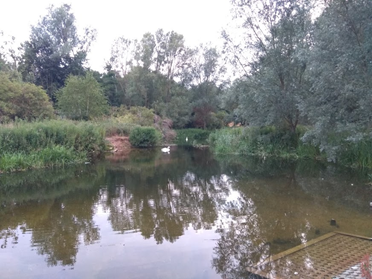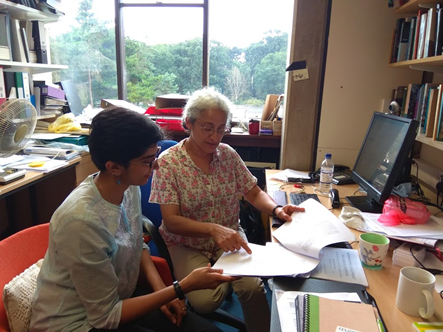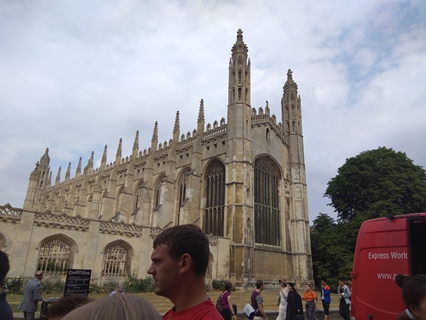Reflections on an ASSAR-SOG exchange at the University of East Anglia, UK

Dr Soundarya Iyer, recipient of an ASSAR Small Opportunities Grant (ASSAR-SOG), describes her experience collaborating with colleagues and travelling in the UK.
In July 2018, as part of a Small Opportunities Grant awarded by ASSAR, I visited the University of East Anglia (UEA) at Norwich for two weeks to work with Dr Nitya Rao. When I first began thinking about migrant workers in cities, building on my own doctoral work on migration and urbanisation, I was motivated to understand what networks migrants use to negotiate vulnerability as they traverse rural and urban landscapes. Given Dr Rao’s extensive work on labour migration, domestic workers and feminist mobilisation, among other things, I chose her as my mentor for this project.
In August 2017, a Bengali Muslim migrant worker, Bashir ul-Shaik was murdered in Bangalore. On December 3, 2017, the 1st All Karnataka Bengali Migrants Conference was convened by various advocacy groups to commemorate the demise of the migrant worker and to mobilise the Bengali migrant community to demand their rights. These events in the city motivated me to write to Dr Rao, proposing that I work on migrant worker mobilisations in the city with her mentorship.

The 1st All Karnataka Bengali Migrants Conference (Photo by Soundarya Iyer)
The journey towards narrowing down the research question was not easy. I first met Dr Rao in India in March 2018 to brainstorm what I could focus on. I decided to focus on place-based mobilisation in Bangalore. I used the knowledge generated from the ASSAR South Asia team, where 1109 households in 31 informal settlements along growth corridors of Bangalore had been surveyed in 2016 to choose a site for further study. ASSAR research found that social networks were key enablers to climate change adaptation for migrants in the city. I met with activists, NGOs and other academics working on the informal sector in Bangalore in different capacities to flesh out my research question. I started my field work in an informal settlement in Bangalore.
The field work revealed that mobilisations were occurring at a city-scale or at the state-scale, and I very quickly realised that I had to tweak my question as there was a scale mismatch. With these questions in mind, I reached UEA to work with Dr Rao. Brimming with questions in my mind and notes and interviews from the field, I checked into my accommodation in Cringleford. The 15-min walk to the university through the large man-made water body was crucial to my creative process. Norwich is famous for its broads which were basically large pits created by peat mining and quarrying. These were later filled up with water, and are now home to several water birds such as swans, moorhens, great crested grebes and cuckoos.

Swans in the UEA broad (Photo by Soundarya Iyer)
I met Dr Rao and discussed the progress in my work since March. She was quick to note that what I was saying about the informal settlement was more a story of social exclusion of migrants than one of migrant worker mobilisations. This was the ‘aha’ moment for my work!

Left to right: Dr Soundarya Iyer and Dr Nitya Rao at work in the School of International Development (Photo by Mamata Pradhan)
I focused the rest of my time reading the social exclusion literature, writing and looking at my material to identify what I needed to do once I got back to complete my study. While I was at UEA, I visited Cambridge, took a walking tour and learnt that the poet Ted Hughes described the King’s College Chapel as a female pig lying down on her back with her feet towards the sky!

The King’s College Chapel, Cambridge (Photo by Soundarya Iyer)
The Small Opportunities Grant was a great opportunity through which I not only closely worked with Dr Rao, but also met Dr Roger Few and Dr Jonathan Pattenden to discuss various aspects of my work, thus enabling new collaborations. I also had a chance to interact with the students of the School of Life Sciences and International Development at the Life Sciences – International Development Symposium at Earlham College Hall, UEA, which is an interdisciplinary alliance for capacity building at UEA. All in all, the ASSAR Small Opportunities Grant was an enriching experience.
Dr. Soundarya Iyer is an ASSAR postdoctoral fellow at the Indian Institute for Human Settlements (IIHS), Bangalore.